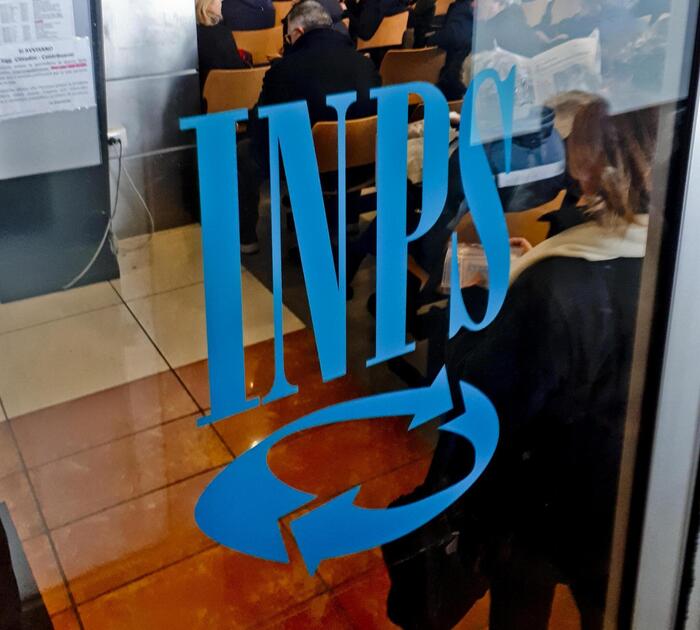Stefan Meier * is a smart boy. The seven-year-old can already multiply and, since he is four, read. But because he is Asperger Autist, he has big problems in dealing with other people. Stefan often can not interpret their gestures and facial expressions, is very focused on his interests and is afraid of change. "If it comes to an overstimulation, for example because it is very loud, threatens in the worst case, a nervous breakdown," says his mother.
Anyone who meets Stefan, how he closes his ears with a lot of noise and then shrieks in his desperation, can hardly imagine him in a crowded classroom of a primary school or even on the playground. In fact, the seven-year-old from Munich has so far been visiting a curative kindergarten because of his difficulties. Because of his great intelligence, however, his parents absolutely wanted to send him to the normal elementary school on the ground - and not to a special needs school.
Stefan's mother Monika * therefore considered together with the school and Stefan's psychologists how his training could succeed. The answer was clear: the boy needs a schoolmate. Such an integration helper helps children with disabilities or need for support - in Stefan's case when dealing with other children or when he is overwhelmed. If an escalation threatens, the escort can go with him out of the classroom, so that the autist does not disturb the lessons.
Also at SPIEGEL Plus
Mother Monika was in good spirits when she started looking for an integration worker a year before enrollment. But then she experienced a veritable odyssey. She registered with numerous school escorts. "But many did not even react," recalls Meier. Others had no place. She was very worried that her boy would even attend school, she says.
Desperate parents
One problem: Many providers often do not even start looking if there is no funding commitment from the youth welfare office - and the decision-making process in Munich and many other cities often takes several months, sometimes even more than half a year. Because the authorities are hardly able to keep up with the rising number of cases.
However, the main reason for the hanging parts of many parents is a lack of integration helpers. "More and more often parents do not have a schoolmate at the beginning of school"; says the Munich Disability Commissioner Oswald Utz. The services are desperately looking for staff. The Maltese alone had more than 50 children on the waiting list at the end of September. In other parts of Bavaria, youth welfare offices, districts and auxiliary services report missing school attendants. "Not a few children do not have a schoolmate at the beginning of school," says Simone Fleischmann, President of the Bavarian Teachers' Association (BLLV).
Disabled representatives such as the social association VdK are also increasingly alarming outside of Bavaria because of the increasingly difficult search for integration workers. Cases in which school attendants have not yet been found by the beginning of the school year are becoming more frequent, warns Fabian Diekmann from Selbsthilfeverband Autismus Deutschland. There are even parents who were looking for helpers abroad.
Many assistants without specialized training
Particularly bad chances have parents who are looking for a pedagogically qualified integration helper. He is often not found, Diekmann knows. On the one hand, the youth welfare agencies often pay too little so that the escort services can keep up with children's homes, youth centers or other educational institutions - on the other hand, the market for teachers is swept clean. And so confirm various providers on request that they work mainly with non-trained auxiliary staff. Verena Bentele, president of the VdK, calls this "problematic". There is also criticism that many helpers do not earn much more than the minimum wage.
In Video: What is Inclusion?
Getty Images / iStockphoto
But many companions do a very good job, despite missing expertise, as Diekmann recognizes. For a long time now, they have become an integral part of everyday school life in inclusive classes. It becomes all the more difficult for the teachers when no helpers are found or when they are sick longer due to illness. The latter occurs more often according to Autism Association and BLLV. "Missing the companion, this is obviously an immense problem for the child, but also for the whole class," says teacher-functionary Fleischmann. If the integration worker was sick, the children would be taken to the teachers' rooms, for example, "because the teachers are afraid that pauses in the playground are not going well," says the teacher.
For autistic people, who need extra stability, missing school attendants are "particularly fatal", says Diekmann. Although there is compulsory schooling in Germany, there are obviously many among them who are regularly denied access to lessons. In a survey of autism Germany out of more than 620 parents of autistic students in 2016, one in five stated that their own child had been excluded from the school before - sometimes for months. The frequent cause was therefore the failure of the integration helper. Because until a suitable successor is found, it often takes a long time.
Ten times more grants
The lack of school attendants could even exacerbate. The number of integration workers approved by the responsible authorities has increased massively in recent years - this was the result of SPIEGEL inquiries in numerous municipalities and municipal associations across the republic. And hardly a youth welfare office assumes that this trend will weaken soon.
The situation in selected federal states
Baden-Wurttemberg
In Stuttgart alone, the number of approved school attendants for mentally handicapped children increased dramatically from 2008 to 2018 to 120. Also in many other districts in Baden-Württemberg the figures exploded.
Bavaria
In Bavaria, the number of mentally or physically handicapped students who are eligible for a school companion tripled from 1496 in 2009 to 4416 in 2018 according to the Bavarian district council. Massive increases were also registered by the youth welfare offices of the independent cities and rural districts. You have to pay the schoolmate if a child suffers from a mental disability such as autism or ADHD. In Nuremberg, the number of school assistants paid by the city increased by 163 percent in just five years. In Munich in 2018 there were already 59 percent more school attendants with 362 than in 2015. Erlangen has recorded a tenfold increase since 2011.
Lower Saxony
In Lower Saxony alone, the counties counted 130 percent more than five years earlier, according to a survey in 2018 with 6870 school attendants.
North Rhine-Westphalia
In Cologne, the number of granting integration grants increased from 438 to 552 cases from 2017 to 2018 alone. The costs have tripled since 2013 to 12.2 million euros last year.
Rheinland-Pfalz
In Rhineland-Palatinate, spending on integration helpers doubled from 2012 to 2017 to more than € 47 million.
Schleswig-Holstein
In Schleswig-Holstein, the number of helpers on the number of students is particularly high. Also because there were many special needs schools and more disabled and behavior-prone children in mainstream schools came, the county day in the northernmost state counts alone in the eleven counties with an increase of 60 percent since 2017 to 4,400 school attendants end of this year.
In Thuringia and Saxony, youth welfare offices are complaining for some time about rising, sometimes even exploding approval numbers. The German Association of Cities assumes that "the demand for school attendants has risen sharply in recent years". And thus also the costs for the cities: Because the municipalities must pay the school attendants completely or at least to a large extent.
Displeasure in the town halls
For example, the amount of funding approved for integration helpers, physically or mentally handicapped, rose from 15 million euros in 2009 to 85 million euros last year. Adding up the expenditure of the independent cities and counties, it is already in the Free State by a three-digit million amount. Also in other federal states two and sometimes even three digit million sums are due. Last year, for example, the districts of Schleswig-Holstein paid 44.4 million euros for the accompaniment of pupils.
But the criticism of the mass helpers deployment is growing. These caused concern in the classes, it is called about. It is also often unclear what criteria some providers, such as clubs, use to award their school attendants - transparency is lacking. Many district councilors and mayors are also afraid that the skyrocketing costs limit their freedom of design. The boss of the Schleswig-Holstein district council, Sönke Schulz, already warns that the eleven counties in the north could reduce voluntary social benefits as a result - for example at debt counseling centers, care centers or meeting and family centers.
Verena Göppert, Deputy Chief Executive of the German Association of Cities, demands that the municipalities should not be left alone in the costs. Inclusive education is "an integral task of the federal, state and local governments". However, hardly any state government makes significant compensation payments for its cities and counties.
Too few professionals in the schools
Above all, ten years after signing the UN Convention on the Rights of Persons with Disabilities in the mainstream schools, the Länder still employ far too few health and special education teachers. Since then, they have been obliged to make it possible for children with disabilities to attend regular school as much as possible. Teacher unions such as the GEW or the BLLV even require a second teacher or a curative pedagogue per class with disabled children. "Only in particularly child-intensive children would then school attendants needed," is also Corinna Rüffer, disability spokeswoman for the Greens parliamentary group, convinced.
VDK boss Bentele would also rather use the funds for more school attendants "to hire educational staff to support the teachers". BLLV chairman Fleischmann sees through the current school attendants system also a disadvantage of educationally far-flung layers. Because this presuppose that the parents "take care of a helper" massively.
But as long as not the countries, but the municipalities pay the school attendants, is a further way for many countries, the easier way. And so the search for a school companion will probably be difficult in many places.
The Meiers finally found a helper. So far, according to mother Monika, it's going well. "The school is fun for Stefan - I'm so grateful to the schoolmate," she says.















